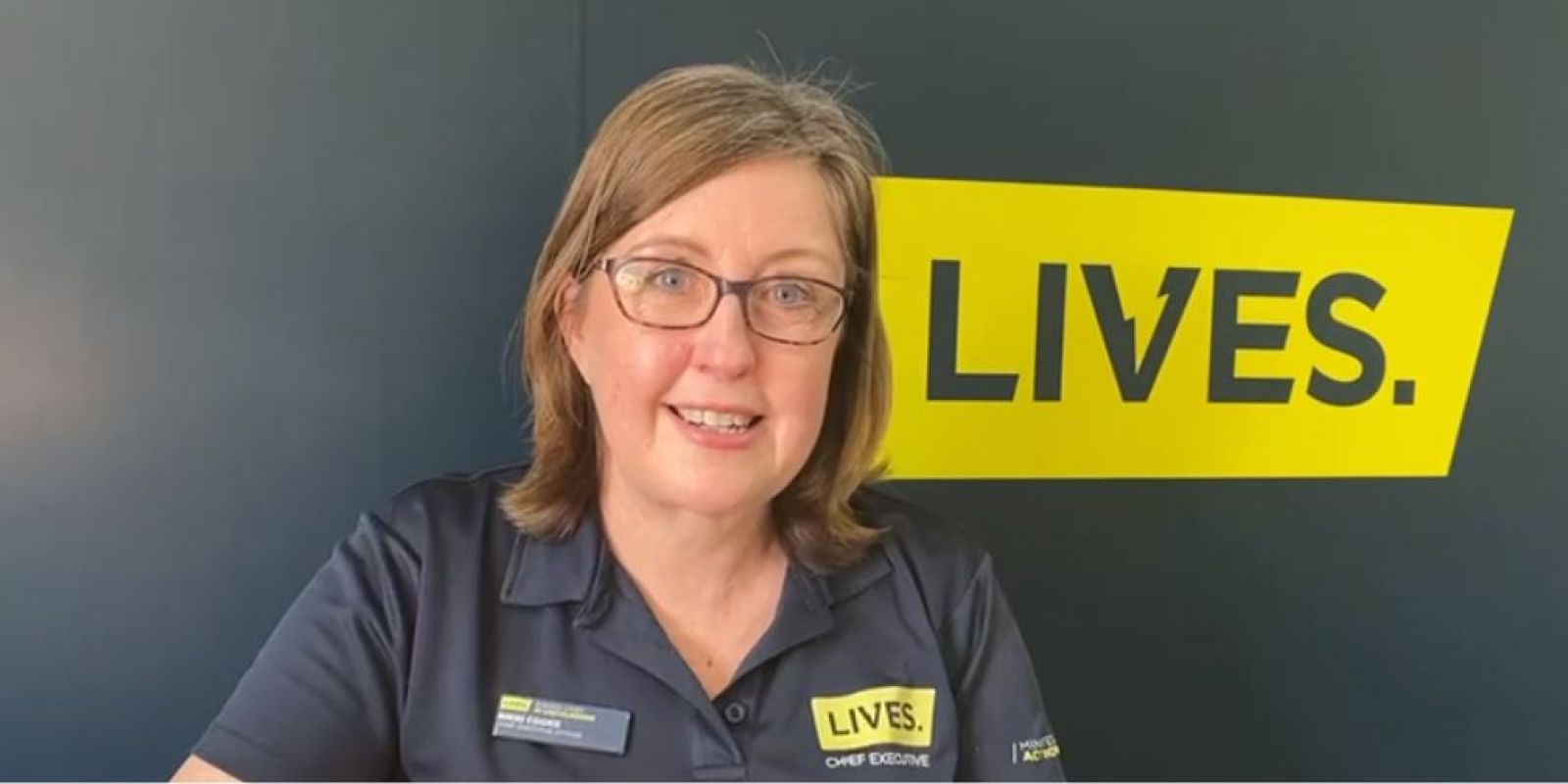Nikki Cooke sits on the Greater Lincolnshire LEP Health and Care Board and is the first Chief Executive of LIVES, a charity providing a first responder and volunteer critical care emergency response to medical emergencies across Greater Lincolnshire. She is an advocate for different models of delivering healthcare to rural communities, and talks about her plans for Project Lifesaver, a specialist immersive education centre for pre-hospital emergency medicine in Lincolnshire. Nikki is also an enthusiastic supporter of the project to pool medical expertise and learning in the new University of Lincoln Medical School.
LIVES is committed to ensuring that the wider community has the skills to respond to medical emergencies by offering specialist training programmes to schools and community groups, business and industry.
Nikki believes that there is a valuable role for the third sector and volunteers to play in helping communities to become more resilient and addressing the challenges of delivering quality health care in a rural environment. "I believe it takes a team to save a life and working in collaboration with others is central to all that we do,” she says.
Delivering healthcare in a rural environment is different from doing so in a city or urban area. Nikki has been involved in the National Centre for Rural Health and Care since its inception and is an enthusiastic advocate for different models of delivering healthcare to rural communities.
Her CEMS (Community Emergency Medicine) team is an innovative example of a new model of care and is unique to Lincolnshire. “We know that the needs of the community are changing and more patients are living safely in the community who would have been in hospital or nursing homes in the past,” says Nikki.
“Emergency medicine is also evolving. Equipment and diagnostics are now portable and connected, which means we can safely diagnose and treat patients in the community who would have had to go to hospital previously.
“Our highly skilled CEMS team responds to 999 calls from patients and can carry out diagnostics such as blood tests and ultrasounds in the patient’s home, and often begin treatments or put plans in place. Most importantly, they have a detailed understanding of the health system in Lincolnshire and how to access the most appropriate support, and for 79% of patients CEMS see that does not involve A&E."
Nikki and her team are excited at the new opportunities the Lincoln Medical School will bring and stand ready to support students with understanding the pre-hospital world. They are also working with the University of Lincoln on research opportunities to aid understanding of the health-related challenges facing rural communities and the effectiveness of alternative models of delivering care to these communities.
Project Lifesaver is Nikki's latest plan to build a unique and world-leading learning environment for pre-hospital emergency medicine. This concept builds on Lincolnshire’s reputation as a model of best practice in delivering pre-hospital emergency medicine in a rural environment and will establish Lincolnshire as they place to train in this challenging area.
It’s an education centre without classrooms that will train LIVES responders and people working in healthcare and the wider community to respond to any number of medical emergency situations skilfully and confidently.
“We’ll be bringing together the best in medical simulation technology along with cameras and sound to capture, replay and review scenarios in real time, combined with learnings from the world of elite sport to encourage the very best performance in all who train in the centre,” says Nikki.
“It doesn’t matter whether you’re a pre-hospital doctor at the top of your skills or a group of school students learning CPR for the first time, everyone will benefit from the immersive learning environment.”
Last year LIVES volunteer responders saw over 12,600 patients. On 83% of occasions LIVES are the first on the scene. In a cardiac arrest situation the chance of the patient surviving decreases by 10% for every minute they are without treatment, so an early response is often the difference between life and death.
Learning CPR is a basic life skill. Every year there are around 30,000 (non-hospital) cardiac arrests across the UK, but less than one in 10 people survives. Our geography means that achieving early defibrillation needs public involvement, and a widely CPR-trained population could double survival rates.
To offer your support and help shape the future of pre-hospital emergency medicine in Greater Lincolnshire contact Nikki Cooke at 01507 525 999, email ncooke@lives.org.uk or read more about Project Lifesaver here.
Watch Nikki's short video here.
Click here to read our latest newsletter and watch other Lincolnshire Voices videos.


